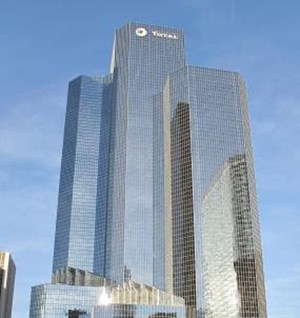South Africa confident TotalEnergies will develop offshore gas discovery
(Bloomberg) — South Africa expects TotalEnergies SE to submit a production plan within weeks to utilize a prolific offshore gas discovery that will form a key part of increasing investment in the sector.
Petroleum Agency South Africa is “very confident” that the French major will finish talks with state-owned PetroSA and complete the required output plan to retain the license, which would otherwise expire on Sept. 6, Chief Executive Officer Phindile Masangane said in an interview. A TotalEnergies spokeswoman declined to comment.
The most industrialized nation in Africa lacks commercial oil and gas production, leaving it reliant on imports of the fuel. Its search for domestic resources has encountered unprecedented opposition in recent months by communities and activists who have successfully blocked exploration activity by companies including Shell Plc.
“As the Petroleum Agency, we acknowledge that South Africa’s upstream oil and gas industry has become litigious,” Masangane said. Steps are being taken to enhance the guidelines around local consultation, which have been criticized by groups in court, while the regulator looks to increase activity, she said.
Production from the newly-discovered Block 11B/12B could revive PetroSA’s 45,000-barrel-a-day Mossel Bay gas-to-liquids plant, which has run out of feedstock. South Africa also plans to use the fuel to transition away from coal, which is used to generate nearly all of the nation’s electricity.
If TotalEnergies meets the requirements, obtains environmental authorization and starts the development -- located in an area regarded as one of the toughest ocean environments due to the Agulhas current -- output could potentially begin as early as 2026, Masangane said.
Shale Prospect
South Africa has also returned its attention to the Karoo, a gas-rich, semi-desert region of the country where dozens of wells were planned almost a decade ago by Shell and other explorers before environmental concerns and legal uncertainty saw activity dwindle.
Regulations were published for public comment last month by the environment minister around hydraulic fracking, a drilling technique that raised concerns over water use in the Karoo. The government will conduct seismic activity by the end of the year to determine which blocks to license after the rules are finalized, according to Masangane. Groundwater and geological studies are also being conducted in the biodiversity-rich areas, she said.
South Africa’s next oil and gas well is expected to start in September. Eco Atlantic Oil & Gas Ltd. and its partners have hired a rig that’s scheduled to arrive offshore South Africa and start an exploration in Block 2B. Processes leading to the activity were followed properly, according to Masangane. “We’re satisfied and not anticipating a legal battle.”



